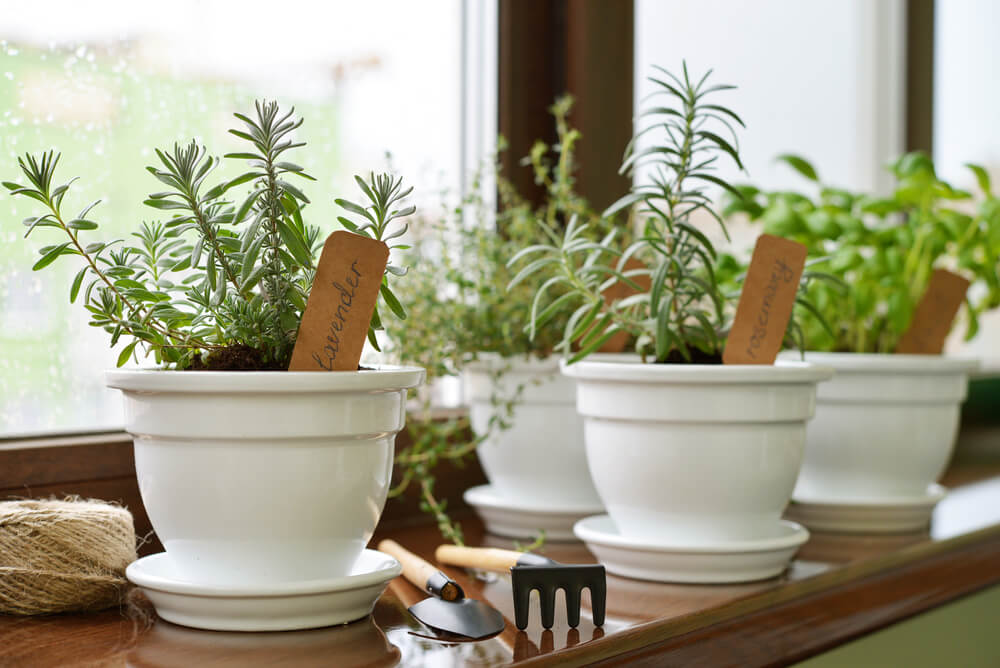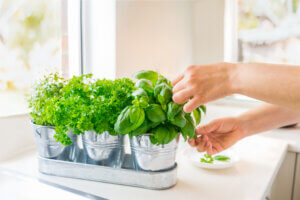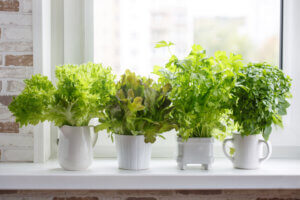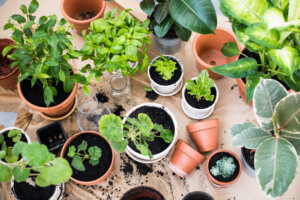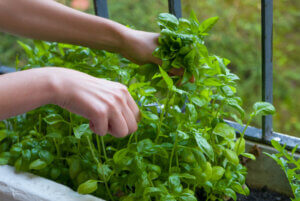As the days are growing shorter and the weather is starting to cool down, gardening season is coming to a close…or so you thought. Planting an indoor herb garden in the kitchen is the perfect way to enjoy fresh herbs all winter long, while also brightening up your dark home with some lush greenery.
Research proves that gardening is beneficial to your health as it lowers the risk of heart disease and diabetes, strengthens your bones, burns calories, and is good for your mental health. So don’t let the harsh Canadian winters keep you from your gardens. Here are a few tips to get you started!
Pick The Perfect Spot
Light is the most important factor when deciding where to put your herb garden in the kitchen. Assure that your plants are in a place that gets around 6 hours of sunlight daily. If you cannot find a place that allows that amount of sunlight, or you already have a place in mind for it that is not near a window, you can look into purchasing a grow light system that will provide you with light similar to that of the sun, whenever, wherever.
Another factor that is important when choosing the perfect spot for your indoor herb garden is temperature. In order for your plants to grow, you must ensure that they are placed where the temperature remains somewhat stable, ideally between 18-22 degrees Celsius.
Pick The Perfect Container
The bigger the better! Be sure to choose choose a fairly large container for your herbs; that way the soil will stay moist for a longer amount of time. It is also necessary that you use a container with 3-5 holes to allow for drainage or your soil will become mildewed.
Many people think that you can plant multiple different herbs all in one container, but that is far from true. There are many herbs that are considered invasive species, and will therefore choke out other species if placed in the same container. So be sure to give each plant species its own home.
Pick The Perfect Soil
The soil that you use for your indoor garden can make a significant impact on how your plants grow. Combining topsoil and compost creates a rich environment for your herbs to flourish. You can also purchase special soil that is specific to what you are growing.
Pick The Perfect Herbs
Some herbs — including chives, mint and parsley — are known to be easy to grow indoors as they do not require much sunlight or maintenance. Basil, on the other hand, is one of the most difficult to grow indoors during the winter months.
Be sure when purchasing your herb plants that they have not already been growing outside. If you were to then bring them inside and try and grow them, their production will be negatively affected.
Why settle for dry, bland herbs all winter long, when you can so easily grow them yourself? This is the time to get started on your perfect indoor herb garden!
